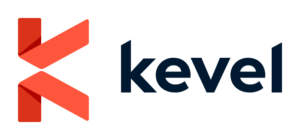Ross McNab, Co-founder & CRO, Kinected Discussing New MediaMath Partnership & DSPs in the Australian Market
by Ciaran O'Kane on 18th Oct 2012 in News


Ross McNab is Co-Founder and Chief Revenue Officer of Kinected, a company whose stated purpose is to launch and operate world-class ad technologies in the Australian and wider APAC region, with partners, Unified, BlueKai and TagMan. To these existing companies, Kinected can now list MediaMath as its newest partner. ExchangeWire is curious to know what Kinected brings to the table and what MediaMath and Kinected plan to accomplish together in APAC.
Why was Kinected chosen by MediaMath as a local partner?
Clients of MediaMath’s TerminalOne demand side platform require outstanding results from the technology. MediaMath and Kinected have created the structure that enables this for the Australian market: MediaMath provide the technology and software; Kinected ensure best path to scalable adoption via local expert support, hastening success for clients.
Most important to MediaMath was, and remains, their confidence that the platform would be well represented, and that its applications would be relevant to the needs of the Australian market. We bring a team with a track record of remarkable success scaling technology solutions across APAC.
Internationally, there is no shortage of choice when it comes to DSPs. Why did Kinected choose to bring MediaMath to market?
I got to know the MediaMath executive team over my last few years in New York when I was growing MediaMind's trading offering. When evaluating partners we had three key criteria:
- First, they were a strong, focused and seasoned technology company. Our own previous experience with other DSPs allowed us to make an educated decision on this front, and having the TerminalOne platform independently ranked as the number one DSP by Forrester late last year certainly helped.
- Second, they were serious about APAC expansion and prepared to develop the platform for the needs of local markets. We know from experience that because Australia is a comparatively small market it can get pushed down the priority queue ending up with local clients getting short shrift. MediaMath and Kinected know this market is strong and growing – investments in localisation are well placed.
- Third, we got along with them really well. It’s important to trust and like your partners!
On every criteria the partnership was right.
Rumour has it you just picked up a very large agency group win - care to share details?
Modesty - as well as confidentiality agreements - prevents me from sharing. We've had a number of big wins since opening up in April, including coming out on top of a major, widely circulated RFP, which we're now in the process of rolling out. What I can tell you is that clients are positively responding to the combination of MediaMath's world-class tech and our local presence, significant trading experience, commitment to service and supportive business models.
In other markets there has been a great DSP ‘bake-off’ - pitching DSPs against each other on media plans. Is this a good approach?
I think most local agencies and trading desks are still working with multiple DSPs, similar to what was experienced in US and UK ‘bake-offs’. You can understand why clients want to do this: They want to be confident they have done their due diligence and made an informed choice. MediaMath won 19 out of 20 of these tests across multiple markets, and we were recently told we outperformed the competition by 30% on a large local test.
I believe what you'll see in the long run is the client aligning with a single DSP, perhaps having a backup on a select few clients so they are always across what else is in the market. It makes sense to rally around one DSP – consolidated cookie pools, improved optimisation off bigger sets of data and also just the trading team having the opportunity to be experts on a technology to drive the best performance with minimal effort.
For me the efficiency angle is a big one – agencies are trying to drive increasingly better performance for their clients. The knock-on effect of digital has been it is far more resource intensive than traditional media, impacting agency costs. A Google study found managing display ad campaigns can take up 28% of the budget in overhead, compared to 2% for TV. Which means for every $100 you spend on display, $28 goes to process management such as negotiation with multiple sites, re-planning, faxing insertion orders, trafficking hundreds of ad tags and so on. The best DSP partner is one who allows your business to produce outstanding ROI for advertisers in the most efficient manner.
When it comes to a list of reasons why advertisers can be wary about ad exchanges, brand safety is at the top of the list. How do you overcome this concern?
The DSP isn’t just about ad exchanges. It’s about creating a marketplace relevant to the goals of the advertiser. This means assembling bespoke environments in which media (biddable, non-biddable, directly-bought) and data work together to produce results.
Controlling for the integrity of these environments from a media perspective is table stakes for a DSP today – as it is for media networks and the curation of their inventory, and as it is for direct publishers when targeting media according to the terms of an IO. The MediaMath platform provides a multitude of options to control for brand safety: ultimately the technology allows for the user to create the environment in which they wish to market: for some that means an expansive strategy from a scale perspective; for others it means exclusively targeting specific media properties. The goal of the technology is to provide flexibility – which may, for example, include the usage of third-party brand verification tools. We recommend those who are compliant with the major sources of RTB liquidity so that reach is maximised. Amongst others, these include Adsafe, who Kinected have launched in Australia too.
There has been a lot of press on FBX. Does the coverage match the client demand? What are you learning from the initial campaigns?
There are moments when you are never more confident in the choice of a technology partner. FBX is one of those moments, as MediaMath is one of the platforms with infrastructure and presence in the APAC market to offer access to this exciting new environment.
Within a month of launching in Australia, the Facebook Exchange (FBX) is already the third biggest supply source in market at two billion bid opportunities in the last 30 days (and growing). The client demand is certainly there, and while it's early days for local campaigns, we've seen success across many international clients. In one case, FBX accounted for nearly 40% of conversions within three weeks of launch, driving nearly 4x the conversion rate of non-Facebook media.
What's the fuss about? For me it boils down to four things:
A huge new inventory source has opened up which is unique to any other supply. Nearly overnight, the game has changed: Facebook has increased the total ad exchange inventory in AU by more than 15%.
For the first time external data strategies, like optimisation with client data and retargeting, can be applied to Facebook (in the FBX, not marketplace environment), and you will be able to add third-party data into the mix once the marketplace is built in Australia by BlueKai.
FBX runs alongside your other media buys, so advertisers can now optimise across a yet greater pool of inventory. Ability to implement third-party ad server tracking is a first for Facebook. Two important pieces with this: first, agencies can now get consolidated reporting out of their ad-server, but leading from that more importantly is the ability to attribute conversions holistically. Massive.








Follow ExchangeWire